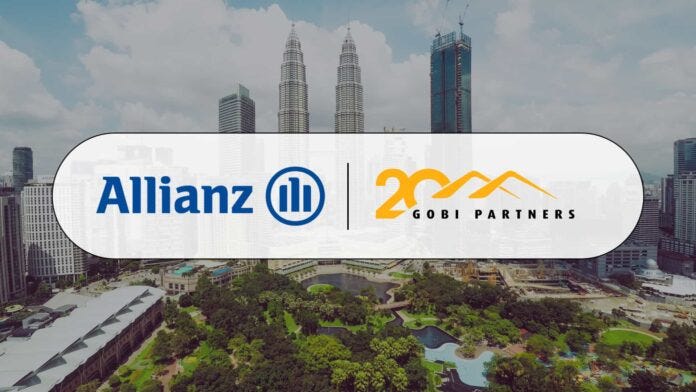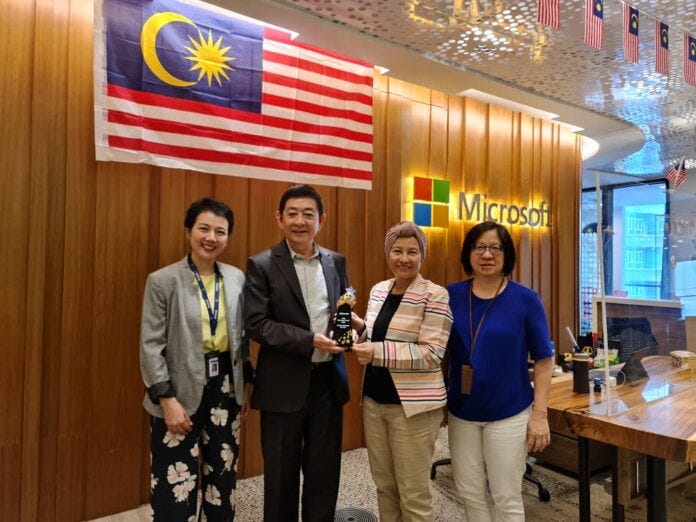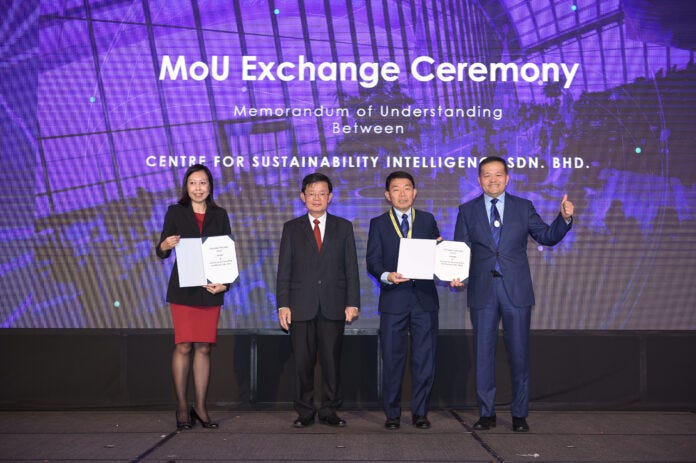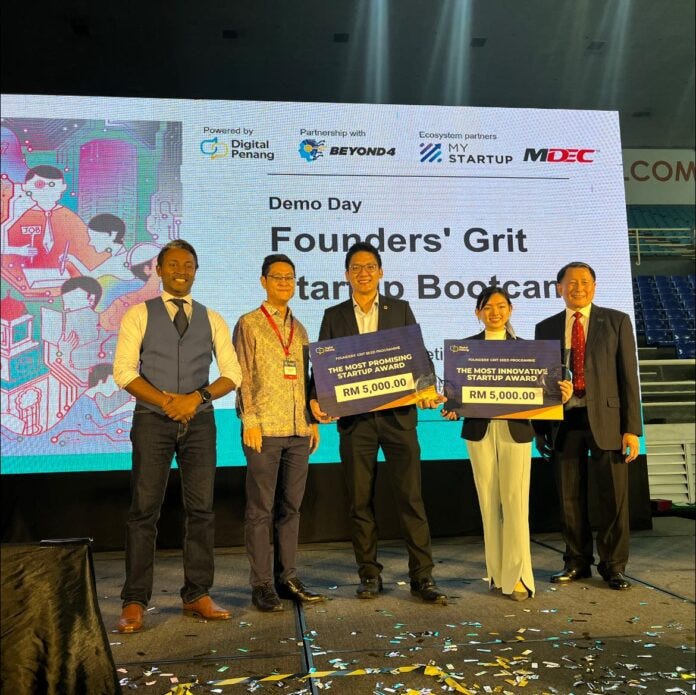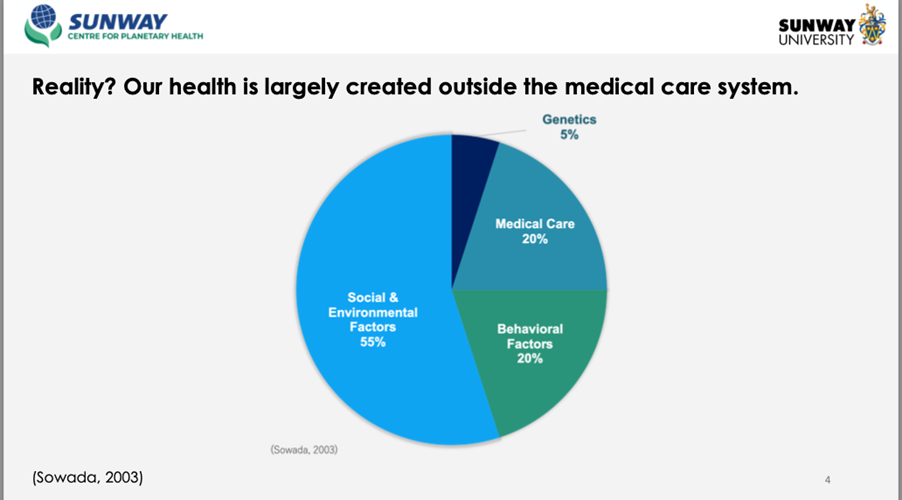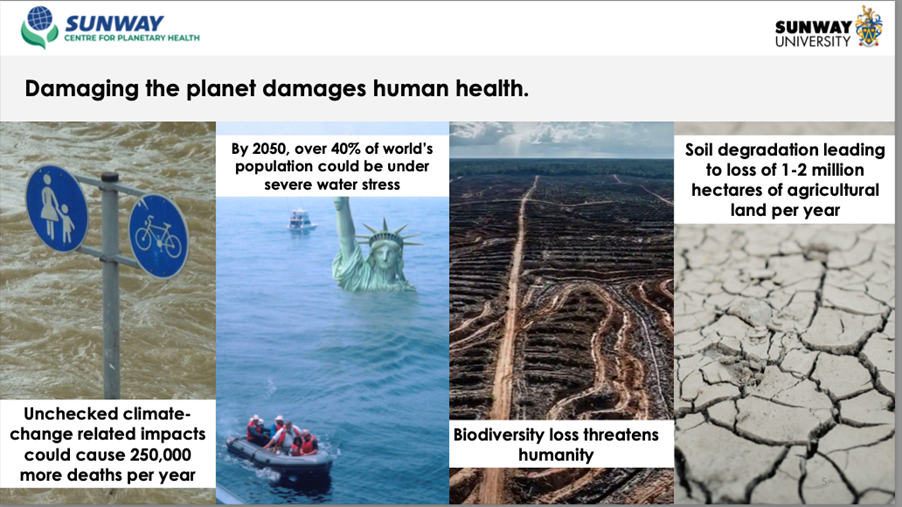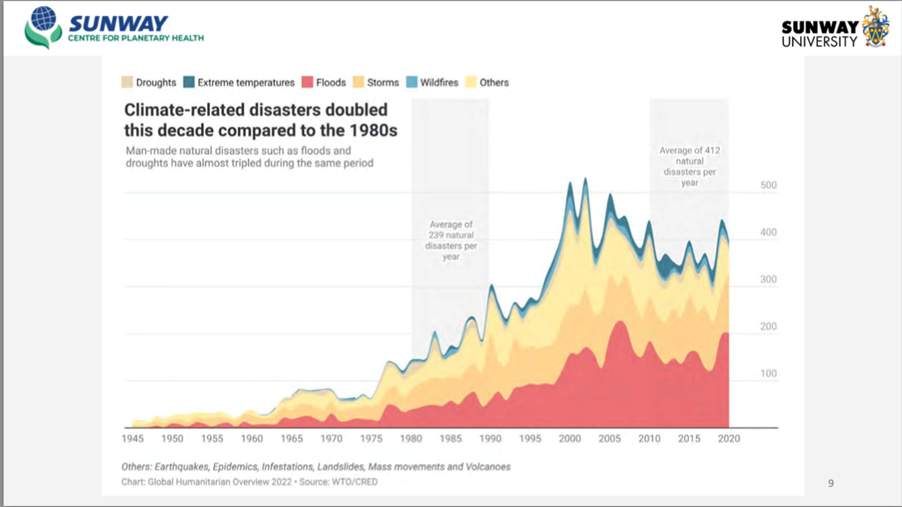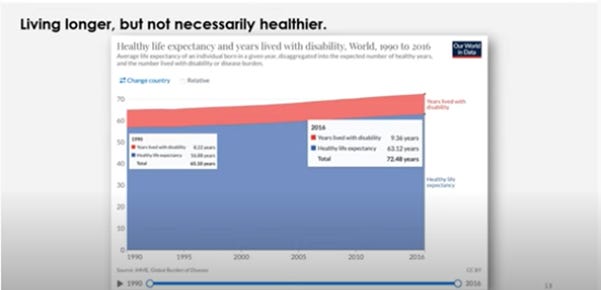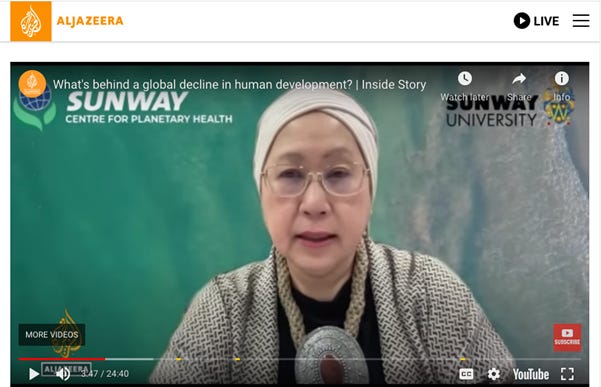Cities of Dreams: What Are Our Challenges And Our Opportunities?
Welcome back to an all-new Head’s Up. Cities have evolved into many different forms over the years. While some cities are made for their people, others have failed to do so. What would you say makes up your city of dreams? Let us know in the comment section below.
This week, I am recapping my conversation with the panel of the Make It Challenge Launch Event, insights to building the cities of dreams and a few words of wisdom from Prof. Tan Sri Dr. Jemilah Mahmood, Executive Director, Sunway Centre for Planetary Health & Professor of Global Health.
But right before you dive into the coverage, here are a couple of news you may have missed and till our next issue, stay safe and stay healthy!
News
Allianz Malaysia Joins Gobi Partners’ Malaysia-Focused SuperSeed II Fund
Pan-Asian venture capital (VC) firm, Gobi Partners announced the closing of its US$10 million Gobi SuperSeed II (Gobi SSII) Fund following the participation of Allianz Malaysia Berhad (Allianz Malaysia) as a Limited Partner (LP).
Other LPs backing the Gobi SSII Fund are institutional investors Malaysia Venture Capital Management Bhd (MAVCAP) and Sunway Group.
For further reading, click here
Iverson Associates Recognised As Top Learning Partner By Microsoft In APAC Region
Iverson Associates Sdn Bhd, Malaysia’s top IT training provider, has won the Microsoft’s FY22 Superstars Award for APAC region.
This award recognises leading Microsoft Learning Partners for their outstanding sales performances and continuous emphasis on growth and direct business.
For further reading, click here
Centre For Sustainability Intelligence (CSI) Inks MoU With PIKOM To Reinforce Green Commitments
The Centre For Sustainability Intelligence (CSI) Sdn. Bhd., a digitally-led, sustainability-enabled business organisation has inked a memorandum of understanding (MoU) with the National Tech Association of Malaysia (PIKOM), the association representing the Malaysian information and communications technology (ICT) industry.
For further reading, click here
Founders’ Grit Seed Programme Paves Market And Funding Access For 13 Promising Tech Startups
Digital Penang’s Founders’ Grit Startup Bootcamp saw 13 shortlisted tech startups pitched on Demo Day at Setia Spice Arena in conjunction with the hottest tech festival in Penang, TechFest 2022.
The Founder’s Grit Demo Day is a culmination of the government agency’s Founders’ Grit Seed Programme’s Cohort 2 where promising tech startups laid out their innovative business tech ideas to seek potential funding from potential investors, venture capitalists as well as equity crowdfunding bodies.
For further reading, click here
Feature of The Week
The ambitious Make it Challenge, co-organised by Sunway University and Sunway iLabs, was designed to inspire participants to create more innovative solutions in the rapidly urbanizing world that we live in. The competition was launched on 8 September 2022, with a fireside chat titled “Creating the Cities of Dreams – Challenges and Opportunities.”
Designed to lay the foundations for participants to begin formulating game-changing ideas, the insightful fireside chat saw experts including Sunway Group’s Group CEO (Digital & Strategic Investments), Evan Cheah; Sunway University Pro Vice-Chancellor and Member of the National Science Council of Malaysia, Professor Mahendhiran Nair; and Sunway Centre for Planetary Health’s Executive Director, Professor Tan Sri Dr Jemilah Mahmood sharing their valuable thoughts.
In his opening remarks, Evan reiterated the purpose of the Make It Challenge and emphasized that the participants with game-changing ideas will be fully supported by Sunway Group’s enabling ecosystem, which comprises 13 business units, making it an engine and a launchpad for transformative innovation.
“We have the funds, mentorship and university’s research capabilities and the support of Sunway Group, its partners, and the government.”
Restating Sunway Group’s commitment and mission to create a sustainable future for all he said, “Sunway has been nation-building over the past 50 years. We have built roads, hospitals, shopping malls, and universities, supporting not-for-profit universities. It’s been something we’ve been doing for a long time and for the next 50 years, we want to have more long-term initiatives – hopefully, good ideas that we can scale up for Malaysia and the world.”
The launch event continued with an eye-opening keynote by Professor Tan Sri Dr. Jemilah Mahmood, followed by a fireside chat moderated by Disruptr Founder and Editor Poovenraj Kanaraj –and featuring Sunway Centre for Planetary Health’s Chief Planetary Health Scientist, Dr Renzo Guinto, DHL Express Malaysia Head of Business Transformation, Liew HunNi, and Sunway Property Head of Research and Analytics Christine Chong Oelofse
Protecting Human Health starts with Planetary Health
Dedicating her keynote to highlighting the unbreakable link between human health and the health of the planet, Professor Tan Sri Dr. Jemilah began her speech by requesting participants to picture health – and uncovered that while most people relate health to hospitals and the healthcare system, the truth is that health is largely created outside the medical care system.
She underscored the urgent need for action and solutions by pointing out that the UN Human Development Report's most recent findings show the devastating impact on billions of people around the world when crises like COVID-19 and the war in Ukraine interact with sweeping social, economic, and planetary shifts including climate change, and related factors.
“Over the past 50 years, humanity has made massive public health gains, but unfortunately, just a couple of hours ago, the UN Human Development Report reported for the first time, that humanity is facing its first back-to-back decline in human development in three decades,” she said.
Damaging The Planet Damages Human Health
Citing even more startling statistics, Professor Tan Sri Dr. Jemilah explained that developmental gains have been made at the expense of the planet.
“By 2050, it's estimated that 40 per cent of the world’s population could be under severe water stress. Some islands in the Pacific will disappear, including the Maldives in the Indian Ocean. Some parts of coastal Malaysia will be underwater, including some areas in which universities, schools, and businesses are currently located. And these occurrences will be as a direct result of our behaviours, causing climate and environmental degradation.”
“Biodiversity loss threatens humanity. This isn’t just about the cute orangutans or the polar bears; it’s about an entire ecosystem that has gone out of balance. As a result of a loss of biodiversity, animals move. And that is why we get zoonotic leaps where viruses jump from one animal host to another and to us.”
“The population is growing. We need more food, we need more chickens, we need more of everything. And when that happens, we just till the soil with no clear sustainable agricultural practices and therefore the soil also becomes unhealthy.”
An Urgent Call For Everyone To Take Action
Professor Tan Sri Dr. Jemilah shared a study demonstrating that humans are living longer but not more healthily.
“About a year ago, in my capacity as the Public Health Advisor to the Prime Minister, when we looked at health and the transformation of health, we found that people are living longer but they are not living healthier lives.”
She quoted an alarming warning by the Rockefeller Foundation-Lancet commission on planetary health, “We have mortgaged the health of future generations to realize economic and development gains in the present.”
“You in this room who are young should be very angry at us. We have failed you. We have developed with the hope of just increasing GDP, without thinking about your future.”
“We have microplastics in our blood because of all the terrible things we have done to ourselves. The amount of plastic we use. The shampoo, the face wash with those microplastic beads, all that gets into the water, the sea, the fish, everything.”
“The planetary health agenda, simply put, is that we, as human beings cannot thrive without the planet thriving. It needs to be both.”
“Health is more encompassing. It’s not just about health ministries and facilities. It’s also about political, economic, and social systems that must be looked at; how we create the synergy and collaboration required for humanity to survive and thrive. So, it’s about achieving the highest level of health, well-being and equity.”
We Need to Put Our Cities Into A Great Transition
Professor Tan Sri Dr. Jemilah underlined that currently our cities are “not built for promoting healthy communities.”
“We don’t have clean air; we have air which is not healthy. Our cities are built more for cars than for people. When we cross the road, we risk dying, being knocked by a car because the roads are just not made for people.”
To illustrate the dire consequences of not putting people at the centre of city development, Professor Dr. Jemilah cited a landmark ruling in Britain where a 9-year-old girl suffered a fatal asthma attack and became the only person in the world to officially have air pollution listed as the cause of death on her death certificate.
“Doctors have failed to recognize that this is a cause of death. The medical training that we received as doctors did not make us realise that the planet is killing us. This is why planetary health is so critical. If you don’t understand the linkages between the planet’s health, your health, and sustainability, then everyone is affected.
“We need to come together now and say that if we want to survive – if we want to thrive, not just survive – we need to have equity. We need to have health. We need to have access to clean air. We need to have an environment that’s safe for children. We need a place to feel safe.”
We Are Both the Problem and the Solution
Professor Tan Sri Dr. Jemilah concluded her remarks with a clarion call for action. She also shared some useful tools to empower the audience and to activate further development of solutions, as well as to encourage participants to leverage the Sunway Group’s comprehensive ecosystem.
In addition, she shared Kate Raworth’s Doughnut Economics framework as a systematic way to think about a more sustainable growth model that ensures planetary boundaries are protected, beyond the sole and often imbalanced pursuit of limitless economic growth.
“Every one of us is responsible for both the damage and the good that is happening on the planet. You and me, all of us.”
For the entire keynote address, watch Professor Tan Sri Jemilah’s keynote address.
For further thoughts on the UN Development Report, watch Al Jazeera’s Inside Story: What’s behind a global decline in human development?
Whether it’s a feedback or if you would like us to put your story out there, reach out to ua headsupnewsletter@gmail.com





